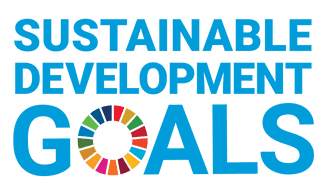The future is our present

“We are pleased to present, for the first time, the strategic sustainability plan in the same document that reports Gefran’s non-financial consolidated data, according to the new GRI Sustainability Reporting Standards 2021.
The form of the publication expresses a substantial fact: the business is conducted in strict compliance with the principles of sustainability. Our company’s development strategy is, inevitably, also a sustainability strategy. This vision has given an insight into Gefran’s choices and is naturally one of the factors that have allowed the Group to grow steadily over the years. This focus was formalised for the first time in 2020 in a Strategic Sustainability Plan.”
The four pillars
In 2022, commitments were strengthened with a new Plan which, without prejudice to the direction announced in 2020, sets new and more extensive measurable targets consistent with the Business Plan.
In the course of the year, two years ahead of the requests introduced by the new European Directive 2022/2464, we started the double materiality process, integrating the “Inside-out” (impact materiality) process according to the GRI Universal Standards 2021, but also the “Outside-in” (Financial Materiality) perspective.
The materiality analysis enabled new discussions on the impacts that the organisation generates (economy, environment, people) and the role in the regions where it operates with a long-term outlook to prevent and mitigate any negative effects.
The Plan is based on four pillars: the centrality of the people; the contribution to the ecological transition; sustainable product innovation; sustainability of the supply chain. For each of these pillars specific objectives have been established to be pursued through 26 projects. Some of these have already begun, others will be developed more in the long term, such as the achievement of carbon neutrality.
In 2022, the Group improved its performance in the various areas that contribute to sustainability and achieved important results. With regard to the centrality of the people, for example, there are many actions aimed at employer branding and improving employee experience, starting with engagement and loyalty plans (ranging from the WELLFRAN people in Gefran organisational welfare programme to international mobility). There has still been a strong focus on training skills which has resulted in customised plans in collaboration with universities, research centres and high schools, and through the FLY Gefran Talent Academy. An important contribution in this sense also comes from the digital platform which employees from all over the world can access to develop skills, undergo training, and exchange experiences and knowledge. The commitment to recognise people’s qualities also includes gender equality, protecting diversity and inclusion.
With regard to the ecological transition, Gefran is committed to a decarbonisation strategy based on various levers involving the entire value chain (from suppliers to the end customer).
With the support of an investment plan, the process has already started to ensure the energy efficiency of plants and to use
electricity from 100% certified renewable sources by 2025. The commitment to responsible consumption of resources has also resulted in an eco-sustainable approach to the development of new products and the use of components made from recycled materials. The objective is to make investments that generate 15% of total turnover from innovative sustainable products within five years.
The steps taken on the sustainability side of the supply chain are also significant. The aim is to gradually extend membership of the Sustainability Pact to the majority of suppliers, a project which will involve all foreign branches in several stages. Today, the major industrial groups play an essential role in spreading a culture of sustainability in the economic and entrepreneurial fabric of a country. Encouraging dialogue with the small local companies that make up the supply chain, which generally have fewer opportunities and resources to devote to the subject, is the indispensable basis for building a sustainable supply chain.
With Supplier Day in 2021, Gefran launched a process to assist local suppliers by providing them with the Group’s expertise and experience and promoting joint initiatives to reduce the environmental and social impact of production activities. In 2022, the process continued with a workshop to share targets and actionplans, focused on climate change and measuring the carbon footprint – a factor that will be increasingly relevant in the assessment of suppliers. While dialoguing with suppliers, Gefran presented the plan to map emissions generated by the supply chain and evaluate its impact on the ecosystem, asking companies to make a commitment in this area. By 2025, similar initiatives will be developed for local suppliers in other countries in which Gefran has production plants.
Just over a year ago, in 2021, the project began to build an Integrated Management System aimed at harmonising the working mechanisms between the various Group companies and facilitating the development of continuous improvement processes.
In 2022, the Quality, Safety and Environment team worked to align the requirements of standards and audit activities to assess the implementation of the Integrated Management System. In the first quarter of 2023, the process was completed and the ISO 45001 and ISO 14001 certificates were obtained; SA8000 certification will be obtained within the year for the Group’s Italian offices. Since 2022 Gefran has been a member of the UN Global Compact, which requires companies and organisations that adhere to them to share, support and implement a set of fundamental principles relating to human rights, labour standards, environmental protection and anti-corruption within their spheres of influence. These can be summarised in 10 principles. These are the same principles that have always characterised our corporate actions and have made the Global Compact a natural conclusion.
This document, which comprises the Strategic Sustainability Plan and the Consolidated Non-Financial Statement, is an integral part of the Group’s business model and its day-to-day management;
through the projects, objectives and activities described in the document, we wish to share with you how Gefran intends to interpret growth that is sustainable, while also being open to the market, the people and the companies it works with.
United Nations Global Compact
Since 2022 Gefran has joined the United Nations Global Compact, with a commitment to make its 10 principles part of our company’s strategy, culture and day-to-day operations. Additionally, we are committed to support the collaborative projects which advance the broader development goals of the United Nation, particularly the SDG Goals and the 2030 Agenda.
The UN Global Compact encourages companies worldwide to create an economic, social and environmental frame aimed at promoting a healthy and sustainable world economy. A global system capable of ensuring everyone the same opportunity to access its benefits. To do so, the United Nations Global Compact requires its participating companies to share, support and apply the principles on human rights, labour, environment and anti-corruption in their respective sphere of influence.

